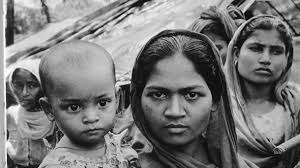On Eve of Visit Obama Criticises Myanmar For Abuse And Rights Violations
The US is unhappy with Myanmar's lack of progress on improving the lives of Rohingyas

NEW DELHI: On Wednesday, hours before United States President Barack Obama was to fly to Myanmar, a Thailand-based publication quoted the President saying that the country’s transition from military rule has not been as fast as hoped and that the Burmese government is "backsliding" on some reforms. Obama is currently in Myanmar's capital, Naypyitaw.
"Even as there has been some progress on the political and economic fronts, in other areas there has been a slowdown and backsliding in reforms," Obama told the Irrawaddy. "In addition to restrictions on freedom of the press, we continue to see violations of basic human rights and abuses in the country's ethnic areas, including reports of extrajudicial killings, rape and forced labor. These kinds of abuses represent the painful history that so many people in Burma want to move beyond,” Obama added.
The US, along with EU, Canada and Australia, lifted or suspended sanctions imposed on Myanmar after a semi-civilian government took power in 2011 following 49 years of military rule and promised to institute sweeping reforms. The government’s stalled progress on these political and economic reforms threatens to jeapordise what was to be a crowning achievement of Obama’s foreign policy legacy. Critics who questioned whether the Obama administration made overtures to the Himalayan country too soon have been emboldened, with question marks appearing over Myanmar’s future.
The biggest challenge facing the country is its treatment of the Rohingya muslim minority -- who continue to be persecuted and in fact, attacks have increased since 2012. A few weeks ahead of Obama’s visit to Myanmar, an influential centrist US think tank, the Center for Strategic and International Studies, issued a report criticising Myanmar's government for presiding over a "humanitarian catastrophe" in western Rakhine state, adding that the government is doing little to track down perpetrators of ethnic-religious violence in the country.
140,000 Rohingyas remain homeless and rounded up barbed-wire-enclosed camps after sectarian violence erupted in mid-2012 with majority Buddhists.
The country continues to deny Rohingyas basic rights, making direct violence against the Rohingyas far more possible and likely than it would be otherwise. The system’s context lies in the 1982 Citizenship Act, which supersedes all citizenship regimes in Myanmar. The Act created three classes of citizens - full, associate, and naturalised. Full citizenship is reserved for those whose ancestors settled in Myanmar before the year 1823 or who are members of one of Myanmar’s 135 recognized national ethnic groups - which, according to the recent census, continues to exclude the Rohingya. Associate citizenship applies to those who have been conferred citizenship under a previous 1948 law, which requires an awareness of the law and a level of proof that few Rohingyas possess. Naturalised citizenship is applicable to those who have resided in Myanmar on or before 1948, and here too, the Rohingya are denied citizenship as the government of Myanmar retains the discretion to deny citizenship even when criteria are adequately met.
It is under the legal system and the denial of recognition that the Rohingya continue to remain a stateless people. Myanmar, which as a member nation of the UN is obligated to promote “universal respect for, and observance of, human rights and fundamental freedoms for all without distinction,” fails to do so for the Rohingyas who are subjected to policies and practises that constitute violations of their fundamental rights and freedoms. They face restrictions on movement, forced labour, land confiscation, forced evictions, extortions and arbitrary taxations, restrictions on marriage, employment, healthcare and education.
It is under these circumstance that rights groups have alleged that the Myanmar government is supporting a policy of “ethnic cleansing” of the Rohingya, with William Schabas, a member of the International Association of Genocide Scholars saying that “the Rohingya are the prima facie victims of the crime against humanity of persecution,” consisting of “the severe deprivation of fundamental rights on discriminatory grounds.”
On Thursday, the United States urged Myanmar to draft a new plan to allow the Rohingya minority to become citizens and to scrap a proposed plan -- known as the Rakhine State Action Plan -- that requires Rohingyas to identify themselves as Bengali. Their refusal to do so will mandate them to be sent off to detention camps under the proposed plan. For Rohingyas -- whose fights is that they are indigenous to Myanmar by virtue of having lived in the country for generations -- identifying themselves as Bengali is tantamount to implying that they are immigrants from Bangladesh.
The Rakhine State ActionPlan violates "universal rights" and challenges Myanmar's reform efforts, said US deputy national security adviser for strategic communications Ben Rhodes. "We would like to see a new plan that will allow the Rohingya to become citizens through a normal process without having to do that type of self-identification," Rhodes told reporters in, Naypyitaw.
Given this context, report the Center for Strategic and International Studies cautioned that ties with Myanmar should not be resumed till the Myanmar military is able to demonstrate that it will not interfere in the country’s elections, scheduled for 2015.
With elections looming, the Rohingya issue has been further politicised -- with political contenders not daring to publicly call for better treatment for the marginalised minority. This includes pro-democracy activist Aung San Suu Kyi -- who is currently barred from contesting the elections in 2015. Obama, however, is making his political leanings apparent, by choosing to meet with Suu Kyi on Friday in the country’s commercial capital, Yangon.
The fact that the country’s future -- and relationship with the outside world -- is ambiguous still, is reflected in Obama’s statement that said, “This election will be critical to establishing a representative democracy that reflects the aspirations of all the people of Burma… And of course it will shape how the United States engages with the country going forward."



